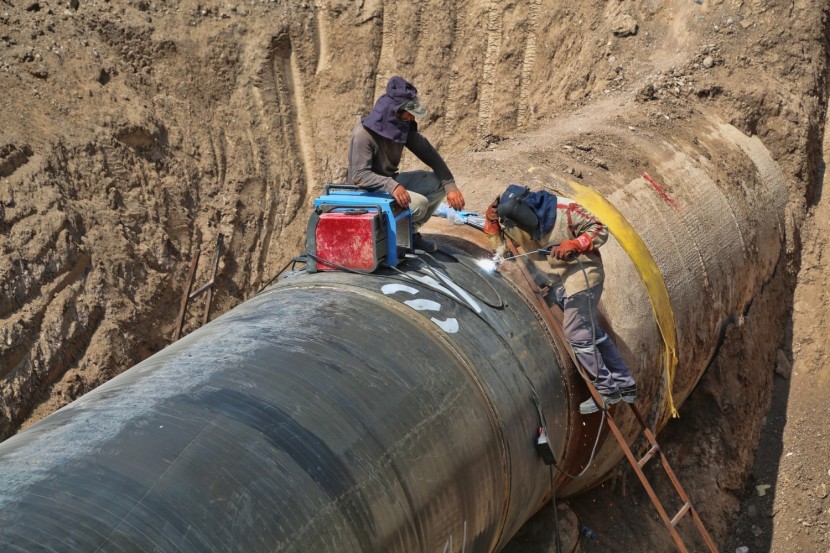
Lawyers representing a Wisconsin Native American tribe will make the case before a federal court on Thursday, May 18, asserting that the tribe's territory is in imminent danger from erosion and the potential rupture of an oil pipeline on indigenous grounds.
Pipeline Shutdown Petition
Last week, the Bad River Band of Lake Superior Chippewa requested US District Judge William Conley to order energy firm Enbridge to shut down the Line 5 pipeline after substantial sections of the riverbank were swept away in northern Wisconsin.
According to AP News, the Bad River tribe claims that in four sites throughout the reservation, there are less than 15 feet (4.6 meters) of land between the Bad River and Line 5. The riverbed has deteriorated in some areas by more than 20 feet (6 meters) in the last month.
In court, experts and environmentalists have expressed concern that a damaged pipeline segment might easily break and release large quantities of oil.
According to Enbridge's engineers, the likelihood of the pipeline being exposed by erosion, much alone rupturing, within the next year is very low. In court documents, the firm claims the tribe has ignored its requests to help line the riverbank with sandbags to prevent erosion.
On Monday, May 15, Enbridge also requested permission from the tribe to install tree barriers along the riverbed as a means of stabilization.
Prior Agreements
Because the land agreements permitting Enbridge to operate on the reservation expired in 2013, the Bad River tribe filed a lawsuit against the firm in 2019 to compel the removal of the approximately 12-mile (19-kilometer) segment of Line 5 that traverses the tribal property.
In September 2022, Judge Conley agreed with the tribe, saying that Enbridge was trespassing on the reserve and owed the tribe compensation for doing so. However, he would not issue an order for Enbridge to remove the pipeline because of concern for the region's economy should the pipeline be shut down.
Instead, last November, Conley ordered Enbridge and tribe officials to devise a plan to cut down the pipeline in the event of an emergency, citing the "catastrophic" danger it posed to the reservation and its water supply if it were to rupture.
Also Read : US Debt Ceiling: House Speaker McCarthy Expresses Confidence, Defends Republican Proposals
Dispute Resolution
According to AP News, Line 5 runs 645 miles (1,038 kilometers) from Superior, Wisconsin, across northern Wisconsin and Michigan to Sarnia, Ontario, carrying up to 23 million gallons (87 million liters) of oil and liquid natural gas daily.
Gas prices would rise, refineries would close, jobs would be lost, and the upper Midwest may experience propane shortages for years if the pipeline were shut down, according to court documents presented by Enbridge.
To settle its disagreement with the tribe, Enbridge has suggested a 41-mile (66-kilometer) pipeline routing and claimed in court documents that the work could be finished in under six years. However, Enbridge cannot begin construction unless the Department of Natural Resources issues the necessary permits.
© 2025 HNGN, All rights reserved. Do not reproduce without permission.








